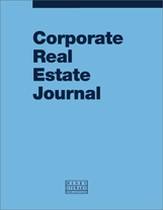Decarbonisation of facility services supported by IT
Abstract
Building owners as well as building users expect climate-neutral building operation within the next one or two decades. The first step in this direction is the analysis on where and how much CO2 is emitted. Building operation requires a variety of facility services (FS), for instance, cleaning, security, catering, inspection and maintenance. For those services a method is needed that allows CO2 emissions to be determined transparently and evaluated with regard to their drivers. An additional challenge lies in the lack of key figures on CO2 emissions per product. Within the framework of the research project ‘CarMa – Carbon Management for Facility Services’ a modular method for the determination of CO2 in FS was developed in close collaboration with FM practitioners, service providers and academics. The CarMa method considers four modules: equipment, operating consumables, transport and overheads. The web-based IT tool carbonFM supports the definition and assignment of products, transport routes, etc. to the respective services. Once this information is entered into the database, the evaluation can start with regard to the significant CO2 drivers. The second step builds on these results and helps identify the benefits of potential alternatives in how to optimise the services with respect to CO2 emissions. Findings of the project are that mobility and machine use are key drivers of CO2 emissions in FS. Process design in FM should react, for example, by preferring a full-day assignment for its staff to employing various persons simultaneously only a few hours a day. On the other hand, route optimisation and time control of equipment use can reduce the consumption of fuel and electric power.
The full article is available to subscribers to the journal.
Author's Biography
Andrea Pelzeter has been Professor of General Business Administration, in particular Facility Management, at the Berlin School of Economics and Law (HWR) since 2007. Previously, she worked as an architect for 10 years and as a research assistant at the EBS Immobilienakademie in Berlin for three years. Andrea completed her doctorate on the life cycle costs of real estate at the European Business School (EBS)-International University in Oestrich-Winkel in 2006. Her research focuses on sustainability in the construction and operation of real estate as well as the decarbonisation of building operations. Andrea heads German Facility Management Association’s (GEFMA) SIG Sustainability and is the lead author of GEFMA’s ‘Guidelines for the Determination of Life Cycle Costs (GEFMA 220)’ and ‘Sustainability Assessment in FM (GEFMA 160f)’.
Michael May has been a professor of computer sciences and facility management at the University of Applied Sciences (HTW) Berlin since 1994. Before assuming his current position he was head of the FM research department at the IIEF Institute in Berlin and worked for the German Ministry of Research and Technology. He earned his PhD in mathematics in 1981 and his postdoctoral Habilitation in information technology in 1990 at the Berlin Academy of Sciences. His current research is related to FM knowledge management, gamebased learning, facility layout automation, IT integration, CAFM/IWMS, BIM, augmented reality and sustainability. He is the editor and author of several books including The Facility Manager’s Guide to Information Technology. He is a board member of the German Facility Management Association (GEFMA) and head of GEFMA’s IT (CAFM) work group. He represents GEFMA at the international level, eg at EuroFM and IFMA.
Tim Herrmann studied computer science at the University of Applied Sciences (HTW) Berlin (Dipl.-Inf. (FH)). After obtaining his degree Tim began scientific research in a project called FM-ASSIST at HTW Berlin. Within this project he was involved in developing a digital consultant system for FM implementation. After completing the research project, Tim moved to the technology company ReCoTech GmbH where he worked as a developer and project manager. Since 2011 Tim has worked at HTW Berlin where he administers a number of HTW’s IT labs and supports students and professors in their teaching and research activities. Tim is also active as FM lecturer at HTW Berlin and Beuth University of Applied Sciences. Within the CarMa research project he is currently involved in developing and testing the carbonFM tool.
Franziska Ihle studied business administration at Berlin School of Economics and Law (HWR) and sustainability economics and management (MA) at Carl von Ossietzky University Oldenburg. Franziska is a research associate at HWR for the CarMa project. Prior to joining HWR she worked as a sustainability analyst at Sustainability Intelligence. Rating publicly traded companies on the sustainability performance, Franziska provided data for decisions on sustainable investments. One of her focus areas was listed real estate companies.
Philipp Salzmann studied Facility Management at the University of Applied Sciences (HTW) Berlin in the Bachelor’s and Master’s programmes. During his studies he supported the research project PlayFM (serious games for the computer-based knowledge transfer in facility management). Afterwards, he was engaged as a researcher in the project FMstar with a focus on the concept creation, AR technology, software usability, and testing. By now he is responsible for the topics information and communication technology (ICT) at Sybac Solar Berlin GmbH.
